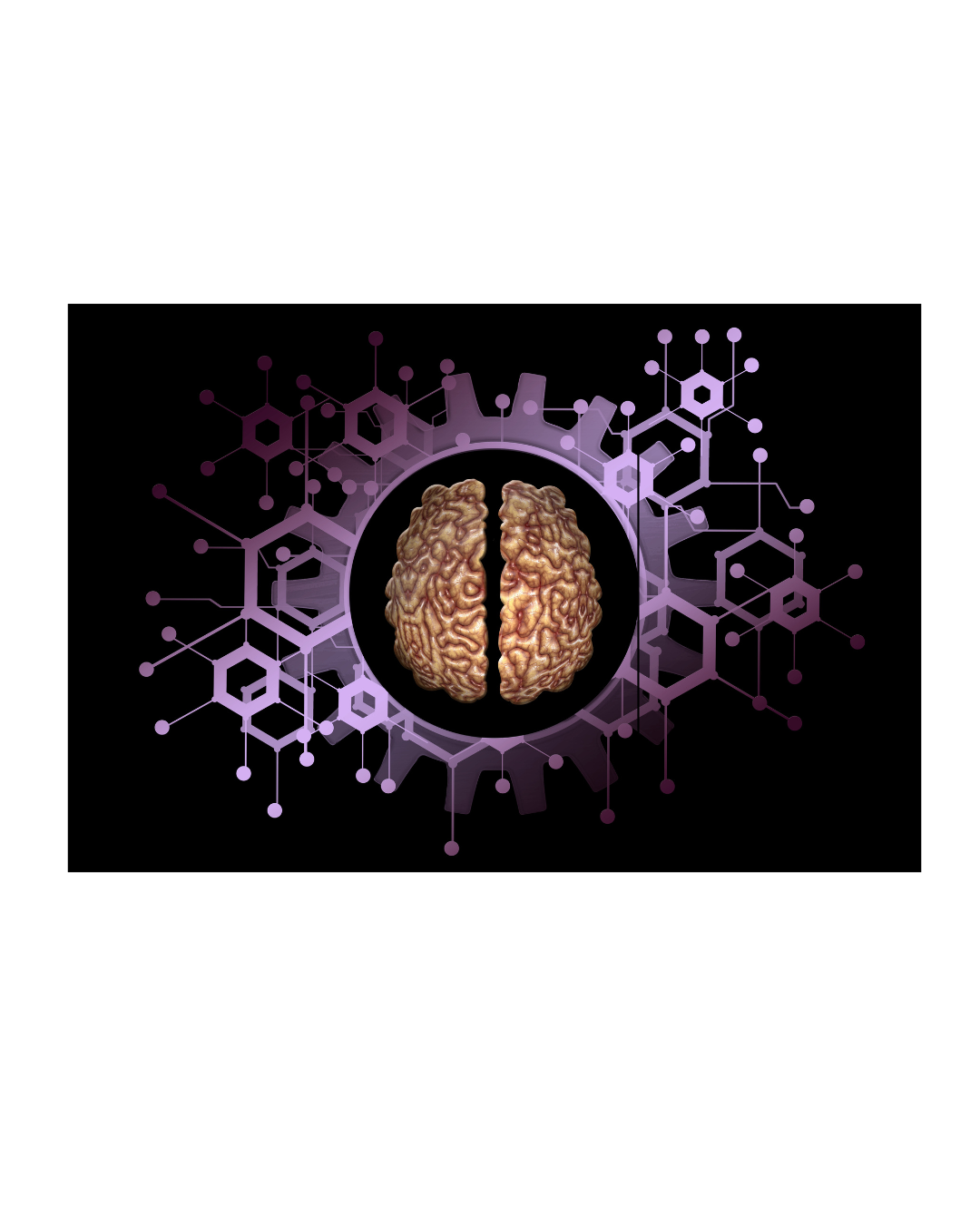
Racing Thoughts, Cortisol, and Vata: An Integrative Approach to Stress Physiology
In today's fast-paced world, our minds are trapped in relentless motion, racing from one task to the next, from screen to screen, rarely pausing. While stress reduction remains vital, the modern wellness movement is shifting toward cognitive fitness and the ability to build mental resilience, not just reduce tension.
“It’s not about escaping stress; it’s about strengthening your mind to thrive in it.”
Ayurveda has long understood this through the lens of Vata dosha, the subtle energy governing movement, sensation, and thought. When Vata goes into overdrive, the result is a constant mental hum: racing thoughts, unstable focus, sleep disruption, and mounting cortisol. By bridging Ayurveda’s ancient wisdom with modern physiology, we can craft an integrative path toward mental clarity and calm.
The Physiology of Racing Thoughts and Vata Overdrive
Vata imbalance, when unchecked, manifests as:
- Fragmented sleep
- Difficulty concentrating
- Anxiety, agitation, and mind chatter
- Physical coldness, dryness, and fatigue
On the physiological side, that manifests as:
- Elevated cortisol levels
- Hyperactive sympathetic nervous system
- Disrupted circadian rhythm
It’s classic modern burnout which is rooted in an overactive vata.
Scalp Massage, Abhyanga and Cortisol
1. Scalp Massage (Shiro-Abhyanga)
A study involving female office workers who received either 15- or 25-minute scalp massages, twice weekly over 10 weeks, observed significant reductions in cortisol, along with improvements in blood pressure and heart rate.1
2. Abhyanga (Full Oil Massage)
A pilot study of classic Ayurvedic oil massage found that just one one-hour session significantly lowered subjective stress and heart rate, particularly in prehypertensive individuals.2
3. Shirodhara & Abhyanga in Anxiety
A case focused on anxiety reported improvements in anxiety symptoms following a regimen of Abhyanga and Shirodhara. Though cortisol levels stayed within the normal range, psychological improvements pointed to restored balance.3
4. Scalp Massage and Mood Physiology
A study using physiological markers found that scalp massage significantly lowered salivary cortisol, increased secretory IgA, and improved mood scores, including reduced fatigue and elevated relaxation levels.4
Ayurveda's Holistic Tools for Mental Fitness
A. Scalp Rituals to Pacify Vata
Shiro-Abhyanga connects you to the parasympathetic nervous system—inducing calm, improving sleep, and modulating cortisol production.
B. Adaptogenic Allies
Ashwagandha, Brahmi, and other adaptogens help regulate the HPA axis, enhance cognitive clarity, and slow the clarity-draining effects of cortisol.
C. Daily Routines (Dinacharya)
Ayurveda emphasizes rhythm consistent wake-up times, nourishing meals, and bedtime rituals to stabilize mind-body rhythms and soothe Vata.
D. Stress as Imbalance and Remedy
From an Ayurvedic lens, stress is more than mental tension—it’s a disruption in doshic equilibrium and Agni (digestive fire). Daily rhythm, oil rituals, warm meals, soothing herbs—they rebuild resilience from the root.5
Surrasa’s Ritual for Resilient Minds
Amara Hair Oil
Your nightly ritual starter, a warm, Vata-calming scalp massage that signals your system to downshift. Just 10 minutes before bed can turn racing thoughts into restorative rest.
Adaptogenic Blends
Formulas featuring Ashwagandha, Brahmi, and gentle nervine herbs support cognitive endurance, stress balance, and emotional poise.
When you combine them, you're not just managing stress—you’re building mental fitness with intention.
The Takeaway
True cognitive resilience involves more than relaxation. It’s about creating rituals that:
- Ground an overstimulated mind (Vata calm)
- Normalize stress physiology (cortisol regulation)
- Restore sleep and focus (nervous system balance)
In our modern era of constant mental distraction, Ayurveda offers tools that soothe and cultivate strength.
Disclaimer:
This article is for educational purposes only and is not intended to diagnose, treat, cure, or prevent any disease. The information provided integrates modern scientific findings with Ayurvedic insights and should not replace medical advice. Please consult a qualified healthcare professional before making any changes to your diet, lifestyle, or treatment plan.
References (PubMed-Indexed Research)
- Kim IH, Kim TY, Ko YW. The effect of a scalp massage on stress hormone, blood pressure, and heart rate of healthy female. J Phys Ther Sci. 2016 Oct;28(10):2703-2707. doi: 10.1589/jpts.28.2703. Epub 2016 Oct 28. PMID: 27821918; PMCID: PMC5088109.
- Basler AJ. Pilot study investigating the effects of Ayurvedic Abhyanga massage on subjective stress experience. J Altern Complement Med. 2011 May;17(5):435-40. doi: 10.1089/acm.2010.0281. Epub 2011 May 13. PMID: 21568717.
- Sharma A, Sugandh M, Bhardwaj A, Gupta A. Role of Shirodhara and Abhyanga on serum cortisol in Anxiety - A case report. J Ayurveda Integr Med. 2025 Jan-Feb;16(1):100948. doi: 10.1016/j.jaim.2024.100948. Epub 2025 Jan 11. PMID: 39799837; PMCID: PMC11773008.
- Shimada K, Tsuchida M, Ohnishi H, Nakano H, Daito S. Effects of Scalp Massage on Physiological and Psychological Indices. 2013 Vol.47 (3) 202-208.
- Swaroop A. Ayurvedic Stress Management: Balancing Mind * Body in Men * Women. Adv Mind Body Med. 2025 Spring;39(2):26-29. PMID: 40265990.
